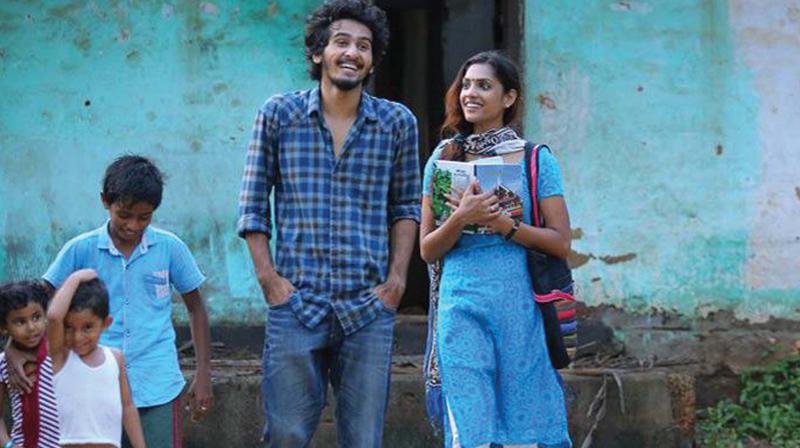When age is just a number
Malayalam cinema is taking great strides in breaking the existing age code'.

She dances in the rain, rides pillion on a motorbike, weeps and longs in solitude — all for a man. Fair, supple and in her prime, with a little bit of acting skills, a woman in Malayalam cinema is eligible for romance. No matter how young she is, her co-star’s age can go up and hit the roof, provided he manages the on-screen antics with ease. Age criterion remained a ‘no man’s zone’ for long until a non-conformist band of directors emerged by the end of the 1970s to liberate the age-old codes that set the cash registers ringing at the Box Office. With their daring depiction of an older woman-younger man bonding, two back-to-back movies, Thakara and Rathinirvedam were tearing apart the stereotypes with an unforeseen vigour.
If the wave of change in the early years was more of a pleasure to the senses, the post-millennial era discusses the topic out loud on a serious note. The trend set by the George-Malar romance in Premam has never subdued since then, proved Kismath and now Bobby. While Kismath pointed at the pockmarked social fabric, Bobby, starring Niranj, son of Maniyanpillai Raju, and Miya as the lead pair follows another pattern to break the strictures. As Kismath turns a year old next week, director Shanavas K. Bavakutty clearly remembers an incident, which inspired the film, during his tenure as a municipal councillor in Ponnani in 2011. It was about an older girl-younger man affair and the problems related to that.
“Only upon finishing the movie had I come in contact with the larger realities in society. If we filmmakers get a go-ahead with these kind of themes, the reason is the changing interests and viewpoints of people. If asked about the finer feelings of the human mind, the answer is love,” says Shanavas. “Age, texture of skin, caste or religion is no barrier to falling in love. The reason for directors not venturing into these less-explored terrains is also due to societal factor, of keeping older women on the fringes. Even if the real incident was not told through cinema in its exact form, what I meant to convey to society was frankly said through the movie,” adds Shanavas. The movie sketching the trials and tribulations a Dalit girl undergoes for her love was a breather to the newer format of cinema.
Shebi Chowghat’s Bobby has enough of comedy, romance and suspense to tell the story of a seminary drop-out’s feelings for an older bank employee. Both get married later due to circumstantial pull. “Haven’t we heard quite often that age is just a number? This movie is just another depiction of this saying. In the movie, you may see a one-sided love that lingers till the end. Bobby yearns for Maria, which is not a mutual feeling. He has all the escapades a 21-year-old has, when his lady love, aged about 27 or 28 years, is a mature woman with more insights into life. When a movie portrays such a tale, it also means the trend reflects in society. Things are moving according to people’s choice,” Niranj reasons.
Often, these stories are noticed and celebrated when told in mainstream commercial films. Parallel cinema had followed this suit much earlier. Shalini Usha Nair’s 2013 psychological thriller Akam, not in the lead roles though had a slice of breaking age-related codes. For a shorter screen time there was Sajitha Madathil playing wife to a young man. The film retold Malayattoor’s Yakshi with a contemporary touch “I know a couple within my family, where the wife is slightly older than her husband. Every talk about them begins with the mention of this age-gap. Even people of same age getting married were mocked at a time, which evolved to be an acceptable norm much later. That the script was adapted from a novel means there existed such relationships in the past. Ours is a patriarchal society that prefers younger women for older men. In cinema, progressive movies with fresh content are rewriting these established set up lately though,” she observes.

